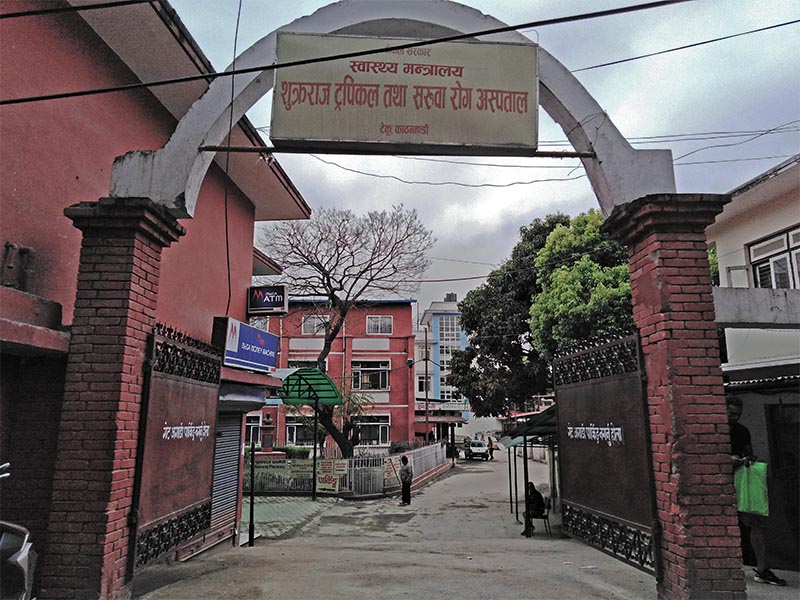Health officials announce first case of coronavirus
KATHMANDU: The first case of coronavirus contraction in the country has now been confirmed.
Health Ministry officials have confirmed that throat swab and blood samples of the infected that had been sent to a World Health Organisation lab in Hong Kong for further tests, have tested positive. The patient doesn’t have any symptoms now, according to the Ministry of Health and Population.
The 32-year-old Nepali student had recently returned from the Chinese city of Wuhan where it is believed the disease first originated.
Sukraraj Tropical and Infectious Disease Hospital admitted him on January 13 on receiving complaints of respiratory problems and inflammation in the throat. He had also complained of mild fever around 10 days ago.
“Since he had returned from Wuhan and had shown symptoms of severe acute respiratory illness, he was initially kept in an isolation ward in the hospital for further tests, as Wuhan had recently witnessed outbreak of pneumonia,” said Dr Anup Bastola, consultant, tropical medicine at STIDH.
As the disease was spreading in Asian countries, Nepali doctors had warned the outbreak could affect Nepalis as well. Around that time, the 32-year-old visited STIDH with symptoms akin to pneumonia that had spread in China.
The outbreak of pneumonia in China is believed to have been caused by a new strain of corona virus.
What is coronavirus?
Coronavirus belongs to a large family of viruses that cause illness ranging from common cold to more severe diseases such as Middle East Respiratory Syndrome and Severe Acute Respiratory Syndrome. The coronavirus found in China is a new strain that was not previously identified in humans. This virus is now spreading from people to people. Scientists have said each infected person is passing the novel virus to 1.4 to 2.5 people.
Symptoms of coronavirus
Common signs of infection include respiratory symptoms, fever, cough, shortness of breath and breathing difficulties. In more severe cases, infection can cause pneumonia, severe acute respiratory syndrome, kidney failure and even death.
Preventive measures
Standard recommendations to prevent infection from spreading include regular hand washing, covering mouth and nose when coughing and sneezing, thoroughly cooking meat and eggs. Doctors advise avoiding close contact with anyone showing symptoms of respiratory illness.






